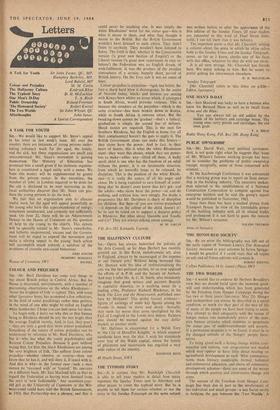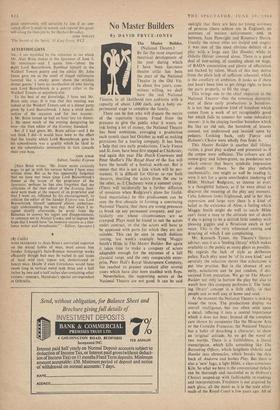SIR,--I would like to endorse Sir Herbert Broadley's view that
we should build upon the immense good- will and understanding which has been generated by the Freedom from Hunger Campaign during the last two or three years (Spectator:May-29). Hunger and 'malnutrition can almost be described as a social condition, so much are they part of the way of life of many of the people we have been trying to assist. Any attempt to deal adequately with the causes of hunger makes one immediately aware of the com- plex human attitudes which combine to perpetuate the status quo of undernourishment and poverty. If a permanent situation is to be found, it must lie in the changed attitude of the 'hungry' people them- selves.
To bring about such a lasting change within com- munities and nations, vast programmes are needed which may appear to have little direct bearing on agricultural development as such. Mass communica- tions, mass literacy campaigns, formal, technical and commercial education, and above all community development schemes—these' are some of the means through which positive and constructive change will
CORM
The success of the Freedom from Hunger Cam- paign has been due in part to the involvement of the individual and small groups---a key factor surely in bridging the gap between the 'Two Worlds.' A
great opportunity will certainly he lost if no con- certed effort is made to sustain and expand this good- will along the lines put by Sir Herbert Broadley.
JOHN WHYATT
'The Sword of the Spirit,' 38 King Street, PI/C2































 Previous page
Previous page